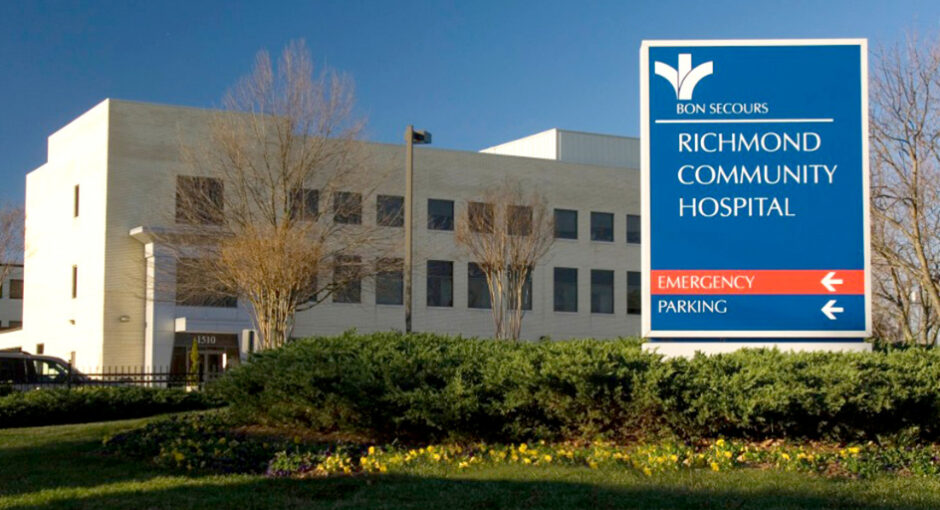The congressman who represents Richmond, Va., told a health system Wednesday he rejects its reasons for ceasing intensive care, maternity, and other vital services at a Richmond hospital in a mainly Black neighborhood despite the hospital allegedly earning millions of dollars for the system buying and billing 340B-purchased drugs at clinics in mainly white neighborhoods.
“I find it unacceptable that it appears the savings the Bon Secours health system has drawn from the federal 340B Drug Discount Program have not been extended to the most disadvantaged patients in the community served by Richmond Community Hospital, and instead have been invested in more affluent communities,” Rep. A. Donald McEachin (D) said in an Oct. 12 letter to hospital President Bryan Lee. “As a supporter of the 340B program, I hope Bon Secours’ actions moving forward more clearly reflect the health system’s stated mission to bring ‘good help to those in need, especially people who are poor, dying and underserved.’”
“In addition to seeking answers from Bon Secours, Rep. McEachin is also actively exploring various options for federal oversight and legislative action,” McEachin’s office said in a news release about the letter.
McEachin serves on the House Energy & Commerce committee with jurisdiction over 340B. A spokesperson yesterday said McEachin “is a strong supporter of the 340B Drug Discount Program and believes this particular issue to be an isolated incident; however, he recognizes that Bon Secours’ actions regarding Richmond Community are incredibly problematic and not how the program should be used. He will continue exploring legislative responses to ensure hospitals are prioritizing the needs of historically disadvantaged communities and that his constituents have access to the care they need.”
McEachin’s letter to Lee is the latest repercussion from a Sept. 24 front-page story in The New York Times. The article said that nonprofit health system Bon Secours Mercy Health has made millions of dollars through Richmond Community Hospital’s participation in 340B at offsite locations in wealthier parts of Richmond miles away from the hospital. Meanwhile, the article said, the hospital gets by “with severely limited supplies and facilities.” Despite its “hollowed-out” condition, the hospital “has the highest profit margins of any hospital in Virginia, generating as much as $100 million a year,” the Times said. Two former hospital executives who requested anonymity told the newspaper that “the vast majority of Richmond Community’s profits come from” the 340B program.
The Times story has inflamed the debate over whether the 340B program needs to be changed and if so how. Groups and individuals aligned with the drug industry invoke the story to support shrinking 340B. Hospital and other covered entity groups respond with reports and testimonials about how 340B helps patients. Entities’ 340B savings should be protected, not taken away, they say.
McEachin wrote to Lee after the two met last week to discuss the Times article.
“During our meeting, I was troubled by your explanation that the community served by Richmond Community Hospital did not demonstrate sufficient need to justify retaining more comprehensive services,” the congressman wrote. “Poverty and low-income status are associated with numerous adverse health outcomes such as shorter life expectancy, higher infant mortality rates, and higher death rates from many diseases, including those related to cardiovascular and kidney health. Seeing a lower volume of patients in disadvantaged communities speaks to the barriers people face in accessing health care—rather than the absence of need for health care.”
A McEachin spokesperson told 340B Report that “recent reports have indicated that Bon Secours stripped down services at Richmond Community Hospital so that it can no longer provide cardiovascular and kidney care, among other key services, and lacks a functional ICU unit.”
“Congressman McEachin expects that a hospital like Richmond Community retain the capabilities to provide necessary medical care for patients in his district,” the spokesperson said. “Patients in the East End should have access to the care they need close to home and should not be subject to life-threatening delays in receiving treatment. Richmond Community serves a predominantly low-income, minority population, so requiring travel to other health care facilities can be incredibly burdensome and prohibitive.”
McEachin told Lee in his letter, “I look forward to receiving detailed information on how Bon Secours plans to improve access to comprehensive services for patients who depend on Richmond Community Hospital for their health care. I also ask that you provide additional information on your process for determining where to reinvest 340B savings in the community, both in the past as well as moving forward.”
Bon Secours Response
“We are grateful to Rep. McEachin for taking the time to meet, and for his support of the federal 340B drug program, which enables qualifying hospitals to receive savings on the cost of life-saving drugs when purchased from pharmaceutical companies, and helps provide drugs and care for all patients who seek it, regardless of their ability to pay,” a Bon Secours Mercy spokesperson said. “As discussed in the meeting, we remain committed to ensuring residents of our communities have access to high quality health care. We also look forward to continuing our conversations with Rep. McEachin and other stakeholders, to identify and address the health care needs of our community.”


